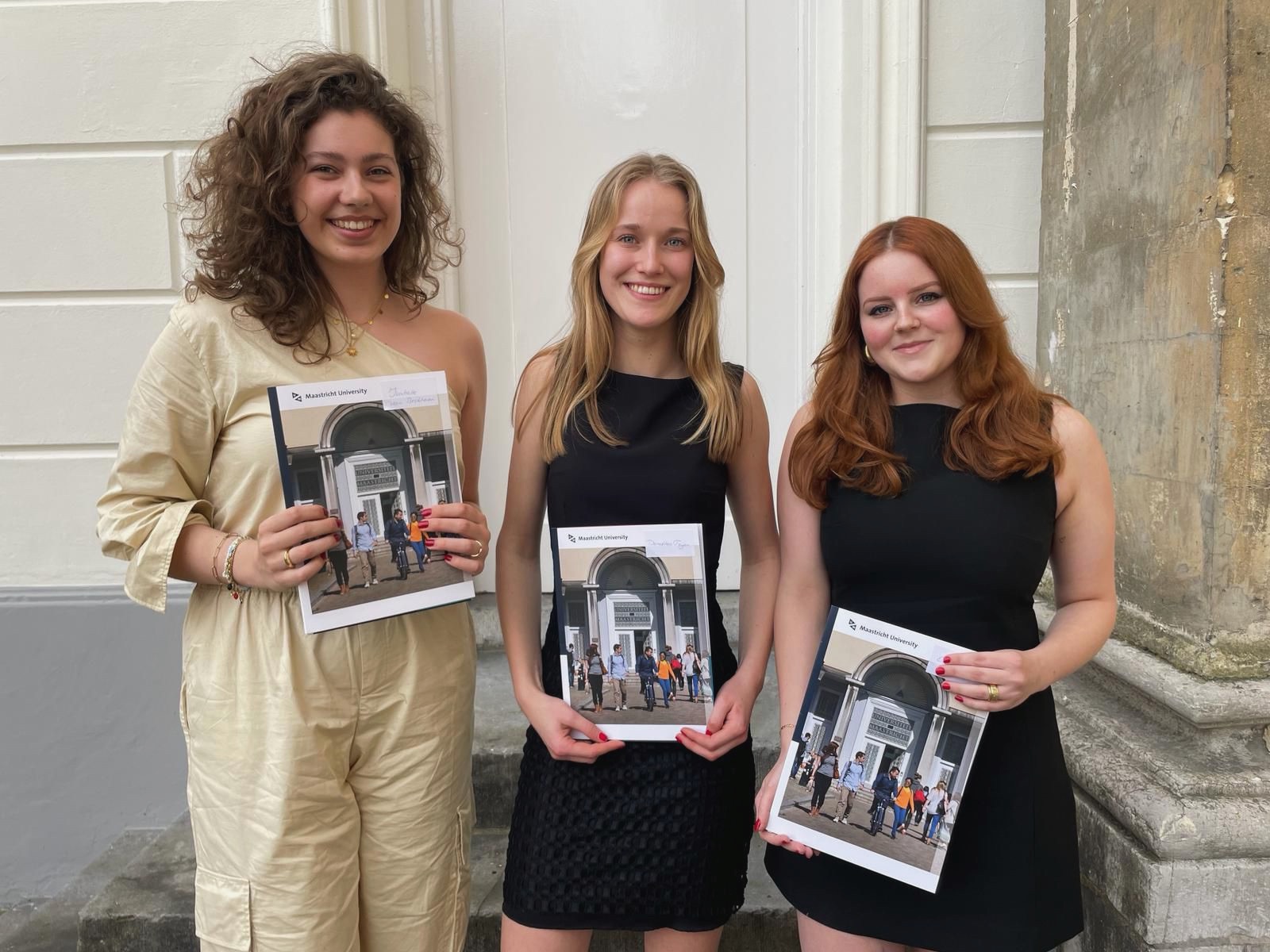Kootstra Talent Fellowship for Alena Kamenshchikova
Alena Kamenshchikova (RL Health Inequities and Societal Participation) was awarded a Kootstra Talent Fellowship. During the next months she will study the challenges of cross-border infectious disease control.
“Receiving the Kootstra Talent Fellowship is really encouraging to me. It allows me to initiate the building of a network of like-minded social and biomedical researchers that can bring together different expertise on borders and infectious diseases (ID)”, Alena says.
Borders play an important role in both the spread and control of infectious diseases (ID). Border regions like the Maas-Rhine Euroregion are characterized by constant cross-border mobilities of workers, patients, tourists and students that contribute to the spreading of ID. “The spread of Q-fever between the Netherlands and Germany in 2009, as well as the spread of the SARS-CoV-2 in Limburg in 2020 that was associated with carnival celebration in Germany, are some notable examples”.
Border crossing mobilities and infectious disease control
”Borders are never completely porous for ID as national health regulations aim to control cross-border mobilities. Securitisation of borders is currently a major public health instrument, as you could see in 2020 when governments around the world closed their national borders to foreign visitors to prevent the spread of SARS-CoV-2. However, it is still unclear how border-crossing practices can be approached in infectious disease control (IDC) practices and policies, beyond the current public health focus on the securitisation of borders. In the context of the SARS-CoV-2 outbreak, public health centres in the Maas-Rhine Euroregion had to adapt their cross-border communication strategies and national tracing guidelines to understand the spread of the infection beyond national borders. Yet, these public health mechanisms have not been able to grasp the informal movements of people that have contributed to the disease spread. We lack insight into how borders actually promote or hinder ID, and how medical doctors and public health professionals can address the challenges of cross-border mobilities.”

Antimicrobial resistance and the SARS-CoV-2 in the Maas-Rhine Euroregion
“To understand how cross-border mobilities are reflected and acted upon at the national level of IDC, I will locate my research in the Maas-Rhine Euroregion border region. This region has already had an experience of cross-border IDC in a context of Q-fever, antimicrobial resistance (AMR) and recently the SARS-CoV-2, which means that these experiences can be collected and analysed. However, public health professionals in this region are still facing challenges on how to navigate and integrate their different health policies, the disagreement on this topic between Belgium and the Netherlands led to the physical border closure in April 2020. I will focus on two specific examples for IDC: AMR and the SARS-CoV-2 – two major global public health problems. It is important to analyse these two examples in one study as public health scholars have urged that misuse of antibiotics for the treatment of SARS-CoV-2 may lead to the sharp increase of AMR. Countries in the Maas-Rhine Euroregion have different antibiotic policies and different levels of AMR in clinical settings, and it is still unclear how these policies have been adapted to the treatment of SARS-CoV-2 and what impact it may have on cross-border patients and travellers. I will work together with my CAPHRI colleagues prof. Klasien Horstman, an expert in public health philosophy, prof. Christian Hoebe, an expert in ID and IDC, and dr. Petra Wolffs, an expert in medical microbiology. At the national level, I will continue my collaboration with the GGD South Limburg. Besides, I will develop collaborations with national public health institutes in the Netherlands (RIVM), Germany (Robert Koch Institute) and Belgium (Sciensano).
For more information, please contact Alena Kamenshchikova (a.kamenshchikova@maastrichtuniversity.nl).
Kootstra Talent Fellowship
Maastricht UMC+ aims to develop talent amongst young scientific researchers through the Kootstra Talent Fellowship (KTF). The KTF allows young researchers to develop their own research ideas and CV, and subsequently help increase their chances of obtaining personal grants at external funding agencies.
Also read
-
The DRIVE-RM consortium, including UM-professor Clemens van Blitterswijk and his team, has been awarded €37.5 million under the prestigious NWO SUMMIT program. The SUMMIT grant recognizes world-class collaborations, while further strengthening these partnerships.
-
Considering the master’s programme Epidemiology at Maastricht University? As a student, you’ll join a broad one-year programme that continuously strives for improvement. After graduation you’ll be eligible to become certified as an Epidemiologist A, and after obtaining a PhD in epidemiology at the...
-
The Honours programme is an extracurricular activity for bachelor’s students in year 2 and 3 to showcase their academic skills and teamwork in a real-life project. We talked to Emma van Straten, a Health Sciences student and Honours alumna who organised an international conference on Lama2 in...


